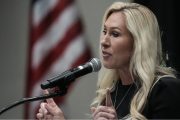While campaigning in heavily Cuban-American Miami last May, candidate Obama said: “There are no better ambassadors for freedom than Cuban Americans.” The candidate continued: “It’s time to let Cuban Americans see their mothers and fathers, their sisters and brothers. It’s time to let Cuban American money make their families less dependent upon the Castro regime.”
Francisco Hernandez, head of the Cuban American National Foundation — an exile group — once firmly supported restrictions on travel to Cuba, but he has since had a change of heart and now supports the latest policy change. He told AP that easing the restrictions will help Cubans become more independent of the communist government “not only in economic terms but in terms of information, and contacts with the outside world.” Hernandez was imprisoned by the Cuban government for nearly two years after taking part in the 1961 Bay of Pigs invasion, which failed when the U.S. government failed to provide its promised air support.
The new policy will not change the present U.S. trade embargo, however. Administration officials said that keeping the present embargo in place will provide leverage to pressure the Cuban regime to free all political prisoners, a first step toward normalized relations with the United States.
The new policy announcement came ahead of Obama’s attendance at a Summit of the Americas to be held in Port of Spain, Trinidad, from April 17 to 19.
Anti-communists (as this writer has long been) who have always opposed any official relations with oppressive communist regimes might be expected to join the two Diaz-Balart brothers, both congressmen, in disagreeing with the president’s decision. This writer’s own representative in Congress, Mario Diaz-Balart, and his elder brother, Lincoln Diaz-Balart, are Republicans whose adjacent congressional districts cover South Florida from the Gulf of Mexico to Miami. Lincoln was born in Havana and younger brother Mario was born in Fort Lauderdale, after their family fled Castro’s Cuba. Like most Cuban-Americans, they are strongly anti-Castro and anti-communist.
The brothers Diaz-Balart posted a joint statement on their congressional websites on April 13 describing Obama’s action as “a serious mistake.” The statement notes, in part:
Despite the Cuban dictatorship increasing its repression of pro-democracy activists, torturing countless prisoners of conscience, and refusing to allow human rights activists and observers into the country, President Obama has violated his pledge of January 20 by unilaterally granting a concession to the dictatorship which will provide it with hundreds of millions of dollars annually. Unilateral concessions to the dictatorship embolden it to further isolate, imprison and brutalize pro-democracy activists, to continue to dictate which Cubans and Cuban-Americans are able to enter the island, and this unilateral concession provides the dictatorship with critical financial support.
As one who has sympathized with the plight of Cubans since the Castro takeover in 1959 (and especially after the Bay of Pigs betrayal in 1961), I find the righteous indignation found in the Diaz-Balart message to be completely justified. Our government should not engage in any action that helps a communist regime stay in power.
However, the history of communism in Cuba is filled with U.S. complicity that goes even beyond the sellout of the brave freedom fighters at the Bay of Pigs. U.S. foreign policy as far back as the 1950s was engineered to cause the downfall of Fulgencio Batista — who despite his faults, allowed a greater degree of personal freedom for Cubans than has existed ever since — and helped bring Fidel Castro to power. Our government placed an embargo on the arms Batista needed to defend Cuba from the Castro guerrillas, while Castro was able to get all of the arms and ammunition he needed from the Soviets and their Latin American surrogates. After Castro’s successful revolution, the Eisenhower administration was so anxious to help the dictator solidify his position that full diplomatic recognition was extended to the Cuban regime on January 7, 1959, just six days after Batista had fled the country.
During the years following the Castro takeover, vast numbers of Cubans in exile in Florida were willing and able to stage a counterrevolution to drive Castro from power. But their efforts were thwarted not only by the infamous betrayal at the Bay of Pigs, but by every impediment our government could place in their efforts to recapture their homeland. A sampling of news reports to this effect during the early 1960s included:
- KEY WEST, Fla. (UPI) — Federal officers seized 13 men in battle dress and a quantity of arms early today in a raid that apparently thwarted a guerrilla attack on Cuba. [Santa Ana Register, December 4, 1962.]
- Refugee groups are running into stronger opposition from the Kennedy administration than Castro’s communist regime in trying to carry out their daring hit-and-run attacks against Cuba. Their clandestine raids now face almost insurmountable barriers raised by government agencies on direct orders from the White House. [The Allen-Scott Report, Santa Ana Register, March 30, 1963.]
- WASHINGTON (AP) — The United States is throwing more planes, ships and men into its effort to police the Florida Straits against anti-Castro raiders operating from this country. [Santa Ana Register, April 6, 1963.]
- MIAMI, Fla., July 20 (AP) — A plane reported destined for Cuba with four bombs aboard was seized here by U.S. authorities, they reported Monday [July 20th]. Exiles said the seizure foiled a plan for a raid on Cuba. [Salt Lake Tribune, July 21, 1964.]
For more information about how U.S. foreign policy helped to install Fidel Castro in Cuba and then solidify his regime via the Bay of Pigs invasion while ostensibly opposing him, see our article “50th Anniversary of Castro’s Rise to Power in Cuba” by Michael Telzrow. When this history is understood, it could be said that for our government to attempt to bring down the Fidel/Raul Castro government via the embargo exile is a futile exercise, at best. For this reason, an alternate position taken by Texas Congressman Ron Paul is also worthy of consideration.
In a statement made before the House on July 26, 2001 and posted on Dr. Paul’s congressional website, the congressman cited a resolution adopted by the Texas state legislature on June 29, 2001 calling for an end to U.S. economic sanctions against Cuba. Paul observed that the Texas lawmakers had “emphasized the failure of sanctions to remove Castro from power, and the unwillingness of other nations to respect the embargo.” In his statement, Paul quoted a Texas legislator who had stated:
I oppose economic sanctions for two very simple reasons. First, they don’t work as effective foreign policy. Time after time, from Cuba to China to Iraq, we have failed to unseat despotic leaders by refusing to trade with the people of those nations. If anything, the anti-American sentiment aroused by sanctions often strengthens the popularity of such leaders, who use America as a convenient scapegoat to divert attention from their own tyranny. History clearly shows that free and open trade does far more to liberalize oppressive governments than trade wars. Economic freedom and political freedom are inextricably linked — when people get a taste of goods and information from abroad, they are less likely to tolerate a closed society at home. So while sanctions may serve our patriotic fervor, they mostly harm innocent citizens and do nothing to displace the governments we claim as enemies.
There are many issues that are very clear cut, with one position favoring freedom, the opposite favoring tyranny; with one position favoring economic prosperity, the other favoring socialist big government and economic stagnation.
In this instance, however, the lines are not so clearly drawn, and careful consideration of the statements of our esteemed legislators from Texas and Florida may be warranted. Our government had a chance to help the Cuban people rid itself of its oppressors in 1961 and, when push came to shove, let the Cuban people down. We owe it to the Cuban people to consider every option, and follow a course that will best alleviate the suffering that our previous missteps caused.




